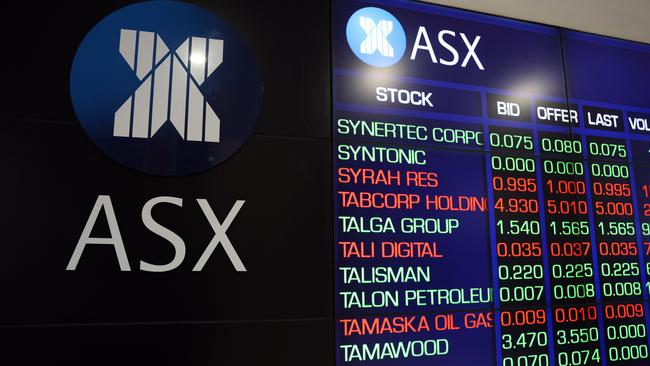
A strong performance from financials continued with Suncorp beating earnings estimates by 10 per cent, while also delivering stronger-than-expected dividends.
Like the major banks that have announced share buybacks recently, Suncorp’s on-market buyback – while just a token 1.6 per cent of its market capitalisation – helped offset uncertainty about the impact of Covid lockdowns amid a high bar that has been set for vaccinations nationally.
But the market is coming up against “valuation stretch” in industrials ex-financials and “heightened expectations” for earnings and dividends, according to Morgan Stanley.
“A recapturing of pre-Covid expectations for FY22 earnings per share and beyond and the index trading at all-time highs suggest all is well with the earnings recovery,” says Morgan Stanley Australia equity strategist Chris Nicol.
“However, beneath the surface there have been many cross-current from growth ‘beware’ signals that have flashed from flattening yield curves and Covid lockdowns.”
Nicol cautions that investors will “get little from companies in terms of granular outlooks”.
“There is enough in the recovery shape and path to expect continued conversations on post-Covid corporate strategy and execution – and we expect investors will be demanding more from companies given the valuation stretch and what would seem elevated expectations from the bottom up.”
Add to that potentially king-sized falls in iron ore miners when they trade ex-dividend. As of last week, spot iron ore had fallen about 27 per cent from a record high of $US233 a tonne.
Futures on Monday showed scope for a further 5 per cent drop after China’s iron ore imports fell 21 per cent in the year to July amid Beijing’s crackdown on emissions from steel production.
It will be interesting to see how Rio Tinto shares go when they trade ex-dividend on Thursday.
Nicol says FY21 earnings growth is expected to be 26 per cent versus just 8 per cent at the start of 2021, capping off what has been a strong upgrade cycle.
The materials sector has done the bulk of the lifting and now accounts for 70 per cent of market earnings growth this year and 43 per cent for FY22.
“Revision strength has been sustained and confession season offered a mixed bag,” Nicol says.
“For valuations, while the overall market multiple has on average compressed from about 20 times to 17.3 times 12-month forward EPS, the median PE ratio still shows more valuation stretch, at 19.1 times, heavily influenced by industrials ex-financials still trading above 30 times.
“For domestic-facing industrials, the final chapters in this fiscal year’s playbook have been dealt a twist at a time when cost pressures are rising, the Australian dollar has reversed direction and crisis assistance is more piecemeal in nature.”
Nicol says the results season could be more volatile for many sectors than might have been anticipated just weeks ago – given the extended Covid lockdowns – with investors likely to scrutinise margins more than sales.
Brickworks has been another casualty of lockdowns, but the sharemarket showed a willingness to look beyond its decision to curtail operations in NSW and Queensland.
Lockdowns were having a “significant impact”, with brick sales only 50 per cent of pre-lockdown levels and NSW restrictions having a “material impact” on its building products earnings.
Brickworks shares closed down just 1.5 per cent at $24.79 after hitting a seven-week low of $12.47.
Transurban suffered traffic impacts as a result of Covid restrictions across all markets, with Melbourne and the Greater Washington area the most affected, albeit with a “recovery trend” evident throughout FY21, before the recent lockdowns.
JPMorgan’s Richard Jones highlights the “very strong” demand for long-duration assets of late, as evidenced by the pricing of Transurban’s selldown of its stake in its US assets as well as privatisations and direct transactions across a range of real assets in Australia.
“We believe this supports the underlying thesis on Transurban and is more important than the short-term impact lockdowns have on traffic and free cashflow,” he said.
Transurban shares closed down 2 per cent at $14.03 after hitting a 10-week low of $13.89.
But such “Covid losers” have tended to outperform “Covid winners” irrespective of whether the results have been a beat or miss, according to Macquarie’s Australian equity strategist, Matt Brooks.
He maintains investors should buy the dips in Covid losers as vaccinations should help normalise earnings and in his view their earnings recovery will outpace that of the broader market.
As of last week, shares of five of 11 of the ASX 200 companies covered by Macquarie that reported June half results beat the broker’s estimate by at least 5 per cent and only one missed.
“This is a good start, although not as strong as the February reporting season as there are slightly more FY22 downgrades than upgrades,” Brooks says.
Of those five stocks that beat Macquarie’s earnings per share estimates, the average outperformance was 6.1 per cent.
Financials accounted for three of the five beats and the strongest post-results outperformance.








It’s still early days in the August reporting season but so far results have been mostly positive.